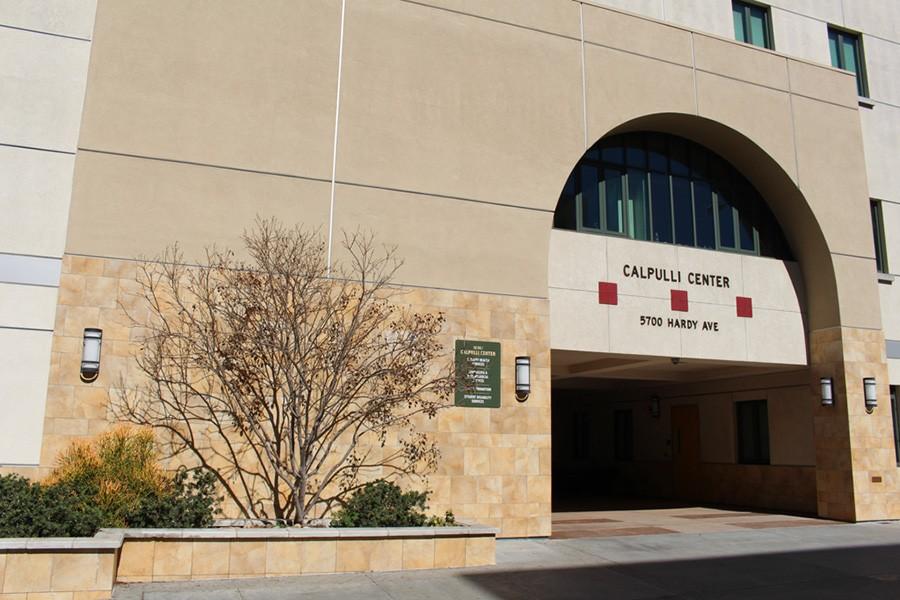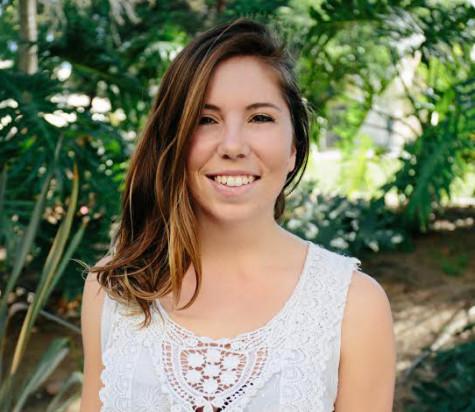Located on the fourth floor of Calpulli Center, the Counseling and Psychological Services is a hub of resources designed to help students, faculty and staff address mental health issues.
One of the first places many visitors go is the Center for Well-Being, which offers everything from a massage chair to a meditation station.
One of the more popular resources is an egg-shaped chair in the corner of the room, which promotes relaxation by creating alpha waves in the brain, similar to what happens during meditation.
“The center was designed by our peer educators, so it’s really by students, for students,” said Jennifer Rikard, Counseling and Psychological Services director.
The Center for Well-Being is only one of the many mental health resources available for students at San Diego State. Students can also attend personal counseling sessions, speak with a therapist by phone and attend group sessions focused on specific mental health concerns such as coping with stress.
Rikard said the number of students seeking help for mental health concerns is on the rise. While depression was the most common concern for many years, anxiety is now the No. 1 issue students struggle with.
“You can speculate that life is more stressful and fast-paced, that more is being demanded from students,” Rikard said.
Financial worries surrounding paying for college and securing a job after graduation are some of the most common concerns among college students. Academic pressure is another common stressor, and one that Rikard said is prevalent at SDSU as the admission requirements continue to rise.
To meet the increasing demand, Counseling and Psychological Services is offering a wider variety of services this semester.
A Women’s Empowerment Group, in collaboration with the Women’s Resource Center, and a Healthy Emotional Living course are some of the new offerings.
One notable tool Rikard said students may not know about is the biofeedback machine, which tracks the user’s heart rate and breathing. By visualizing these physical reactions, users can learn how to manage their stress and anxiety. Breathing exercises are a common solution to help manage these issues, Rikard said.
Additionally, the department was able to add two new psychologist positions this year, thanks to an increase in resources. Counseling and Psychological Services is funded almost entirely by the health fee all students pay, which came to approximately $300 per student for the 2015-16 academic year.
As enrollment continues to climb, so does the funding. Despite this increase in resources, the demand for services remains higher. This means some students are put on a waitlist to access services.
Students in the midst of a severe mental health crisis, such as suicidal thoughts, death of a loved one, or an assault, are brought in for face-to-face counseling immediately. Other students,with less severe mental health concerns may have to wait weeks for an individual face-to-face meeting.
Rikard recommends students call the center and speak to a therapist, who can recommend several resources.
Even if a student can’t be scheduled for individual therapy sessions immediately, they may be able to address their problems through one of the group sessions or another resource.
One of the major initiatives Counseling and Psychological Services continues to address is the de-stigmatization of mental health issues.
“It’s not like it’s just ‘other people’ who have this problem with mental health,” Rikard said. “It touches all of us and so it’s up to us to reduce stigma. It’s all of our responsibility to speak about it in a way that helps the problem and doesn’t hurt it.”
She said she believes SDSU is doing a good job of destigmatizing. She said around 10 percent of the SDSU population utilizes the mental health resources and many students are getting involved as peer educators.
One of the campus organizations that seeks to promote an open culture around mental health is Active Minds.
“Our main goal is to reduce the stigma surrounding mental health and to make the subject approachable and part of the conversation,” said Jasmine Belleza, president of the organization.
“Active Minds is about reducing that fear and stigma and making sure they get the help that they need.”
They encourage students from all majors to consider joining the organization.
“We have had many biology majors, business majors, basically a lot of people that have wanted to make a difference in the community. Anyone is welcomed to join,” Belleza said.
Interested students are encouraged to attend meetings on Thursdays at 1 p.m.











